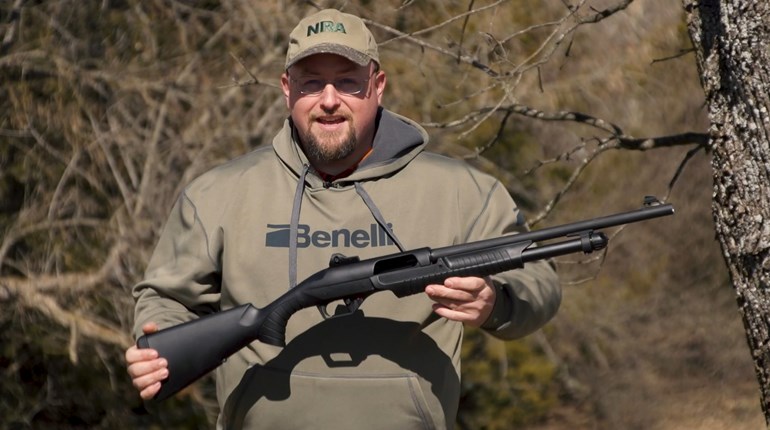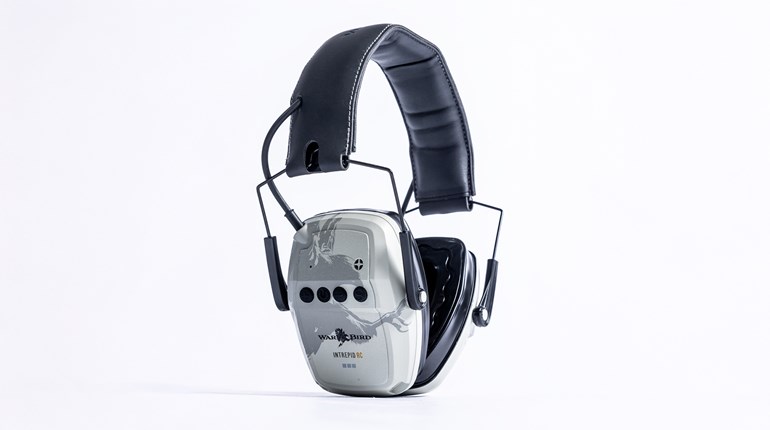
The below is an excerpt from the 1978 book, Olympic Shooting, written by Col. Jim Crossman and published by the NRA.
1906—Athens: But Not For Record
By Colonel Jim Crossman
Baron de Coubertin was unhappy about the Olympic Games. After the great start in Athens, with all the pomp and ceremony, the impressive buildings and other fine features of the I Olympiad, things had gone sour. His own France had missed the whole point of his philosophy and had made only a half-hearted, poorly organized attempt at putting on the Games. And his country's effort made the Games a sideshow to the fair, rather than stressing the Games as important in themselves. Nor did his friends in the New World do much better. Again set up as a sideshow to another big celebration, the 1904 Olympic Games at St. Louis were only a small part in the many contests held over a six-month period.

Baron de Coubertin was happy with the ways things were going in one regard at least. Following the successful Games of 1896 in Athens, the Greeks loudly claimed that the Games, as their heritage, should be held permanently in Athens. While pleased with the Greek enthusiasm and delighted with the way the Greeks had conducted the first Games, the Baron thought the site of the Games should be moved from place to place to spread the interest in the Olympic movement, as well as to get athletic facilities built in various countries.
The Baron decided he had found a way to settle both of his problems. He suggested that a series of Games be celebrated every four years in Athens, in the middle of the period between the main Olympic Games, which he still proposed should be moved from city to city. In this way he would make Athens happy and he would be sure of at least one excellent set of Games every four years, and the Athens example might set a pace for the Olympics in other cities.
The year 1906 was selected for the new beginning at Athens. And this was the year that the Athenians did themselves proud. With the background of their previous successful Games, they made many improvements for a fine performance. Many nations which had passed up the St. Louis Games sent large groups of athletes to Athens. The Greek people were enthusiastic, and the spectators filled the stadium to overflowing most of the time. From the ceremonies to the contests, it was a great year.
Except for the American shooters. While there were numerous shooting matches, there was no American shooting team. Despite the American interest in international competition of one kind or another, there was scarcely a mention of the 1906 Games at Athens in the various magazines with an interest in shooting. The National Rifle Association by 1906 was active once again and was busy staging championship matches with rifle and pistol at Sea Girt, N.J. Neither the NRA, nor the U.S. Revolver Association raised a team for the 1906 Olympic Games, if they knew such an event was under way. It was not until two years later, at the 1908 Games, that the National Rifle Association and the U.S. Revolver Association officially sponsored Olympic teams.
The 1906 Athens Games were successful, even without U.S. shooting entries. But by the time four more years had rolled around and it was time again for the Games at Athens, the Greek political climate had changed and the in-between Games were dropped. The 1906 Games were the only ones of their type. Although planned to be a part of the Olympic cycle and considered official at the time, they are now officially considered unofficial Games, although some of the scores and records are carried in the official United States Olympic books.

The shooting events of 1906 were much along the lines of those held at the last Olympic shooting match, the 1900 French Games. Most of the events were similar to matches of today, but a couple need some comment. The two dueling matches were like those so popular in France and shot extensively in the famous Gastinne-Renette galleries.
The match au vise was with dueling pistols, taking careful aim. The usual dueling pistol for many years was a muzzleloader of about .45 caliber. The Paine brothers were not allowed to shoot their .22 pistols in 1896 because the big muzzleloader was the "customary" pistol.
Shooting au commandement is the forerunner of our present-day rapid-fire pistol event, and is very similar to the course-of-fire in the modern pentathlon. As shot around the turn of the century at Gastinne-Renette, the shooter faced a silhouette target at 16 meters (53 feet). He held his pistol, loaded and cocked, down at his side, with the grip of the pistol touching his thigh. The range officer asked the shooter if he was ready. When the shooter said "yes," the range officer then commanded: "Fire, one, two, three!" He gave the commands at a cadence of 100 per minute, and the shooter was required to raise his pistol and fire before the count of three. The counting rate was governed by a metronome in the range. At the rate of 100 per minute, this gave the shooter 3/100 of a minute, or about two seconds. The present pentathlon course gives the shooter three seconds.
In 1906, Walter Winans wrote, he and some friends had been shooting with Renette at 25 yards with the timing at the rate of 216 beats per minute, and omitting the word "three." Several of the shooters had put 12 consecutive shots in the silhouette at 25 meters.
A variation of the single silhouette game was often used outdoors. In this case, five silhouette targets were used and five shooters, one for each target. Using the pistolet de combat, a .44 caliber single-shot, the shooter fired at the target on command. It is easy to see that some of our present courses-of-fire developed from these events.
The conditions of the shotgun competition in 1906 are not clear. The results are listed for "clay pigeon single shot" and "clay pigeon double shot."
It seems likely that the first event was fired at a single clay bird. Either one or two shots may have been fired at each bird. Both methods were common in those days, and sometimes a higher value was given for a bird broken with a single shot, than for a bird broken with two shots.
The clay pigeon double-shot match may have allowed two shots at a single bird, but it seems more likely that two birds were thrown simultaneously but in two different directions and the shooter fired one shot at each, much as in the present United States trap game of doubles. In any case, the Merlins from England seemed to have a stranglehold on the shotgun events, just as the Paine brothers had on the revolver events at the Athens Games of 10 years before.
Although it is now officially ruled that the 1906 Games were unofficial, it is nice to know that the Greeks showed the way again. The 1906 affair got back to the principles of the Baron, and again established an example that other countries could follow.
Athens again? Not yet. In 70 years, the Games have not gone back to the founding city. But with the examples of two sets of Games under most difficult circumstances, the Athenians can rest on their laurels. (Note: The Olympics returned to Athens in 2004, 26 years after this book was published—Ed.)
See more: The Origin Of The Olympic Games

































